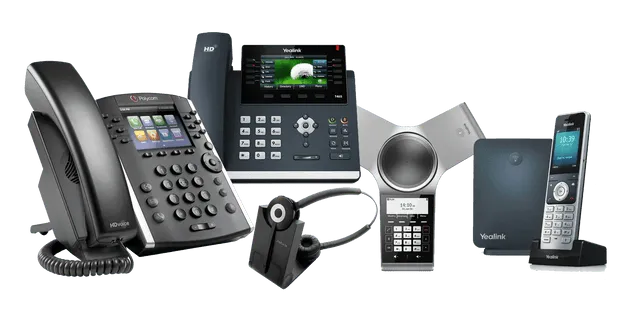
Communication has come a long way. From old landlines to smartphones, and now to internet-based calling, the way we connect keeps changing. One of the biggest shifts in recent years is the VoIP phone. But what is a VoIP phone, and why are so many people switching to it? This guide will walk you through everything you need to know, in simple terms.
If you are looking for reliable devices, you can explore our VoIP phone collection, where we feature trusted brands like Yealink, Snom, Grandstream, and more.
What is a VoIP Phone?
A VoIP phone uses the internet to make and receive calls instead of old copper telephone lines. VoIP stands for Voice over Internet Protocol. That’s a fancy way of saying your voice is turned into digital signals and sent online.
These phones can look just like regular desk phones, but they connect through your internet router. You can also use VoIP apps on your smartphone or computer.
How Does a VoIP Phone Work?
Here’s the simple version:
- You speak into the phone.
- Your voice is turned into small data packets.
- Those packets travel through your internet.
- The other person’s VoIP or landline phone receives them.
A VoIP phone can be:
- Hardware-based – looks like a normal office phone but connects through Wi-Fi or Ethernet.
- Software-based (softphone) – an app on your computer or mobile device.
Main Features of VoIP Phones
Traditional phones mostly just make calls. VoIP phones, on the other hand, come with many extras:
- Call forwarding and call waiting
- Voicemail to email
- Video conferencing
- Easy connection with business tools like CRMs
- Ability to add or remove users in minutes
This makes VoIP flexible for both home and business users.
VoIP vs Traditional Phones: A Side-by-Side Look
Here’s a quick comparison of VoIP vs landline phones:
| Feature | VoIP Phone | Traditional Phone |
| Cost | Lower monthly costs, cheaper international calls | Higher monthly fees, costly long distance |
| Call Quality | Depends on internet speed | Stable and reliable |
| Flexibility | Works anywhere with internet | Stays in one location |
| Features | Video, voicemail-to-email, forwarding | Limited to voice calls |
| Emergency Calls | May not always connect to 911 | Reliable for emergency services |
Both options have strengths. If the internet is strong, VoIP offers more features at a lower cost. If you live in an area with poor internet, landlines may still be better.
Types of VoIP Services and Providers
There are two main types of VoIP services:
- Residential VoIP – simple and affordable for home use.
- Business VoIP – full of features for teams, remote workers, and growing companies.
Some popular providers include RingCentral, Vonage, Zoom Phone, Ooma, and 8×8. In our store, we carry trusted IP phones from leading brands like Yealink, Snom, and Grandstream that work with most VoIP services.
Benefits and Drawbacks of VoIP Phones
Benefits:
- Lower cost than traditional lines
- Mobility (works anywhere with internet)
- Advanced features for work and home
Drawbacks:
- Needs a strong, stable internet
- May not work during power outages
- Some services don’t connect well to 911
This balance is why many businesses choose VoIP for flexibility, while some homes may still prefer landlines.
Who Should Use VoIP Phones?
- Small businesses – Affordable and scalable.
- Remote workers – Stay connected anywhere.
- Families – Save money on long-distance or international calls.
- Large companies – Advanced tools for big teams.
But if you live in an area with weak or unstable internet, a landline might still be more reliable.
How to Get Started with VoIP
Starting with VoIP is easier than most people think:
- Pick a VoIP provider.
- Choose a device (desk phone, app, or PC).
- Check your internet speed (a stable connection is key).
- Install and start making calls.
Conclusion
VoIP phones are changing the way we communicate. They offer lower costs, more features, and flexibility compared to traditional landlines. Still, they depend on a strong internet, so they may not be perfect for everyone.
If you’re ready to upgrade your communication system, check out our collection of trusted brands on spoglink.shop and find the VoIP phone that’s right for you.
FAQs About VoIP Phones
- What is a VoIP phone?
A VoIP phone is a device that lets you make calls using the internet instead of telephone lines. - How does a VoIP phone work?
It changes your voice into digital signals and sends them through the internet. - Who uses VoIP phones?
Businesses, remote workers, and families who want affordable and feature-rich calling. - Why are VoIP phones cheaper?
Because they use your internet connection instead of dedicated phone lines. - Will a VoIP phone work without internet?
No. VoIP needs a working internet connection. - Can I keep my current phone number with VoIP?
Yes, most providers let you transfer your number. - What internet speed do I need for VoIP?
At least 100 kbps per call, but faster speeds mean better quality.
Read More Related Posts: